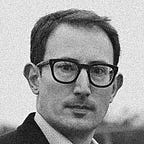The Nature of Memory
The case of the murder of Sophie Toscan du Plantier revolves around hundreds of witness statements taken over many months. Some people were interviewed several times, and sometimes these interviews were held years apart. Memory is a fragile thing. Police interviews are stressful, formal occasions. At the time, Irish police did not tape record interviews, so nearly all of them only exist on paper as typed up by the police and signed by each witness.
I contend that no weight at all can be attached to precise timings of events. Humans are not good at remembering time, unless there is some specific corroboration, some wild event that caused them to look for the time and note it down. This happens only rarely. More than this, I contend that even the precise date of a memory is suspect.
We cannot trust anyone who commits themselves too confidently to a precise time. What were you doing at 11:53am 21 days ago from today? I have absolutely no idea what I was doing, what the date would have been, or what day of the week it would have been. I would have to sit down and think about it, with my diary to hand.
This is the topic of this article: the idea of human memory being utterly flawed.
I have selected one person, Eddie Cassidy, to demonstrate these thoughts. Eddie Cassidy is a journalist, with a long career, and well-used to dealing with the specifics of time and date. Unlike another journalist you might be thinking of, he has an irrefutable alibi for the murder as he lived and worked in Cork City for the…
